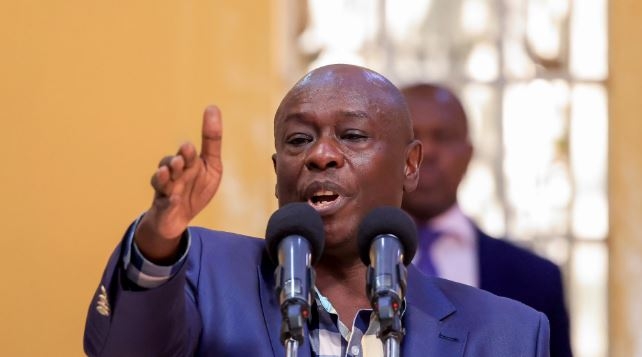

Kenya has once again shown its strong commitment to fair and safe working conditions across Africa by hosting a high-level regional labour meeting in Kisumu.
The African Regional Labour Administration Centre (ARLAC) working parties’ meeting brought together senior labour officials from across the continent to discuss important policies that will shape the future of work in Africa.
The participants also deliberated on key policies aimed at modernising labour administration systems and strengthening decent work frameworks across Africa.
Speaking during the official opening, Labour and Skills Development Principal Secretary Shadrack Mwadime welcomed delegates and highlighted Kenya’s consistent role in championing regional labour cooperation.
“Kenya’s successful hosting of ARLAC forums underscores our strong commitment to strengthening institutions that promote fair, safe, and productive workplaces across Africa,” said Mwadime.
He noted that this marks the fourth time Kenya has hosted an ARLAC meeting in the past five years, a clear demonstration of Nairobi’s active role in shaping Africa’s labour agenda.
The PS also recalled Kenya’s pledge at the ARLAC Governing Council in Geneva in June 2025 to host the Working Parties, reaffirming the country’s dedication to honouring its regional commitments.
This year’s meeting focuses on a range of crucial topics, including performance management and staff development, risk management in labour institutions and anti-corruption measures.
Others were internship and youth employment programs and policies to combat workplace violence and harassment.
“These aren’t just administrative documents; they are roadmaps toward safer, more equitable workplaces for millions of African workers,” said Mwadime.
He encouraged delegates to exchange ideas and craft solutions that reflect the diverse realities of the continent.
The outcomes of the Kisumu meeting will inform the agenda for the upcoming Committee of senior officials meeting scheduled for October 2025.
“Let us approach this engagement with a shared vision, to build stronger, more resilient, and more just labour institutions that serve our people effectively,” he urged.
Reflecting on continental progress, Mwadime cited South Africa’s experience in reducing labour unrest through the development of strong institutions.
“There was a time when labour protests were frequent in South Africa. Today, the situation is different because of the systems they've put in place. We pray the same for all African countries, that we create environments where workers thrive, economies grow, and productivity flourishes," he stated.
He noted that improving labour conditions has a direct impact on economic development.
“Our objective is twofold: to ensure that workers, in both the public and private sectors, operate in safe, supportive environments, and ultimately, to grow our economies. When conditions are right, productivity increases. And with productivity comes economic expansion and improved standards of living for all Africans.”
















